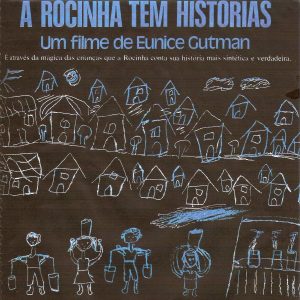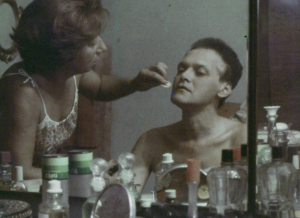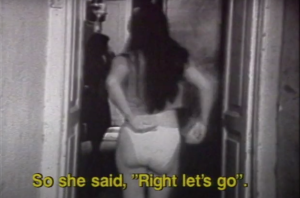HOJE EU SOU EU (Today I Am Myself)
Three films by Eunice Gutman
Hoje eu sou eu showcases a collection of three films by Eunice Gutman that illuminate hidden corners of 1980s and 1990s Rio de Janeiro. As an independent filmmaker, Gutman has staunchly advocated for greater civil, social, and political rights for women and marginalised communities. Her films hold a lens to the unseen struggles and triumphs of these groups, and until today continue to amplify their voices and challenge societal norms.
A programme curated by Camilla Baier from Invisible Women for Brasil: A Slow Film Festival (Sixth screening) in association with Latin Connections Film Festival.
Edinburgh
Where: @St. Peter’s Church Hall (Lutton Pl, Newington, Edinburgh, EH8 9PE)
When: Sat 08 June – Doors open at 19:30pm, screening starts at 20:00
***
Throughout her career, Brazilian filmmaker and video artist Eunice Gutman has dedicated her work to amplifying the voices of the disenfranchised, challenging prevailing cultural conventions, and shedding light on the roles of women in Brazilian society.
In A Rocinha tem histórias (1995), Gutman delves into the reality of community schools in the Rocinha favela of Rio de Janeiro. Here, children and teachers unite in a struggle for social space and the education of the community’s youth, finding ingenious ways to navigate their challenges. Amores de Rua (1994) offers a portrait of Rio’s red-light district, weaving together a series of interviews with sex workers, capturing the evolution of their informal networks into organised advocacy groups. And Só no Carnaval (1982) explores broader notions of femininity by following a carnival block party where a group of cis men traditionally dress up as prostitutes, challenging traditional gender roles in the Carnaval festivities.
Films

A Rocinha tem histórias (1985)
Eunice Gutman.
16mm, colour, 35 mins
In Rio de Janeiro’s Rocinha favela, teachers and children passionately fight for social space and educational opportunities, crafting their own path towards empowerment. By creating a project to turn the children’s stories into books for the community they transform their everyday struggles into inspiring tales, revealing the power of creativity amidst adversity. Gutman’s film not only showcases the resilience of these communities but also captures the essence of childhood imagination, addressing serious issues with a spontaneous and creative approach.
Awards: Winner of the Best Direction and Best Cinematography awards at the I Rio Cine Festival, Rio de Janeiro, 1985; Winner of the Best Direction award in the 16mm category at the Brasília Brazilian Cinema Festival, Brasília, 1985; Awarded the Margarida de Prata by CNBB in the 16mm medium-length category, Brasília, 1986; Winner of the Best Direction award in the 16mm category at the Gramado Film Festival, Rio Grande do Sul, 1987.

Só no Carnaval (1982)
Eunice Gutman & Regina Veiga.
35mm, colour, 12 mins
In the lively streets of Rio de Janeiro’s Penha neighborhood, there is a long-standing tradition that sees family men donning women’s clothing, particularly sex worker’s clothes, for the annual Carnaval festivities. Produced predominantly by a female team, this documentary offers a broader exploration of this practice within Rio’s carnival culture as it interrogates these cis men’s motivations as well as traditional gender roles in Brazil.
Awards: Best Editing in 35mm at the Niterói Festival, Rio de Janeiro, 1983; Silver Medal in the Documentary Category at the 22nd Jecenice Film Festival, Yugoslavia, 1985.

Amores de Rua (1994)
Eunice Gutman.
Vídeo Betacam, colour, 27 mins
Amores de Rua paints a vivid picture of Rio’s red-light district, weaving together a series of interviews with sex workers who are becoming increasingly politically organised. Gutman cultivates a profound sense of empathy by giving her subjects the platform to speak directly to the camera, conveying their personal stories and emotions in their own words, providing an unfiltered and intimate glimpse into their world.
Awards: Honorable Mention at The New York Festivals, 1993; Best Video at the International Journey of Videos and Films of Bahia, Salvador, 1994; First Prize at the Latin American and Caribbean Video and Film Contest at the “La Mujer Y El Cine” Festival, Mar Del Plata, 1994; First place in the Competitive Exhibition of Videos at the IV Festival of Audiovisual Action Woman, Recife, PE, November 2010.
Buy Tickets



